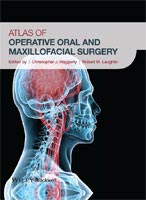What are wisdom teeth?
Wisdom teeth, or third molars, are the last teeth to develop and erupt into your mouth. Wisdom teeth normally begin to erupt between the ages of 12 and 25. Most people do not have enough room in their mouth for these extra teeth and they become impacted and/or erupt twisted or malpositioned. Impacted wisdom teeth are surrounded with bone and/or tissue and are hidden under the gum line. Their presence can cause significant crowding and shifting of other teeth, pain and infections. Orthodontic treatment may be ruined as the teeth are forced out of their straight positions. Cysts, tumors and jaw fractures can develop from impacted wisdom teeth that are not extracted. X-rays can determine the presence of wisdom teeth and their associated pathology.
When should wisdom teeth be removed?
Although wisdom teeth can be removed at any age, the most common time is between the ages of 12 and 25 years.This allows for removal when the teeth roots are only partially formed and healing is optimized due to the patient’s age.
What complications are associated with NOT removing impacted/retained wisdom teeth?
- The creation of bone and soft tissue defects behind the second molars
- Root resorption of the second molars
- Formation of decay within the third or second molar due to inability to adequately clean between the teeth
- Crowding or shifting of other teeth, thus ruining previous orthodontic treatment
- An infection called pericornitis that occurs around partially erupted lower third molars
- Cysts and tumors can form around unerupted third molars
- Lower jaw fractures are more likely with impacted third molars
What to expect with wisdom teeth surgery?
At your consultation, the doctor will go over your health history and films and give you an opportunity to ask questions. An appointment will be made that is convenient for you. Since wisdom teeth are frequently removed with IV sedation, a driver will be required to accompany you to your appointment and escort you home at the completion of your care. On the day of your appointment you will need to arrive at the office wearing comfortable clothing and flat-heeled shoes. Please refrain from wearing jewelry, contact lenses and finger nail polish, acrylic nails and gel nails. An IV will be started and you will feel very relaxed. At the completion of your procedure, you will stay in the office for a period of time in order to recover from the medications that you received. Instructions and a prescription for pain medication will be given and a follow up phone call will be made later that day. Any questions after hours will go directly to our on call answering service, thus ensuring the best possible care.




